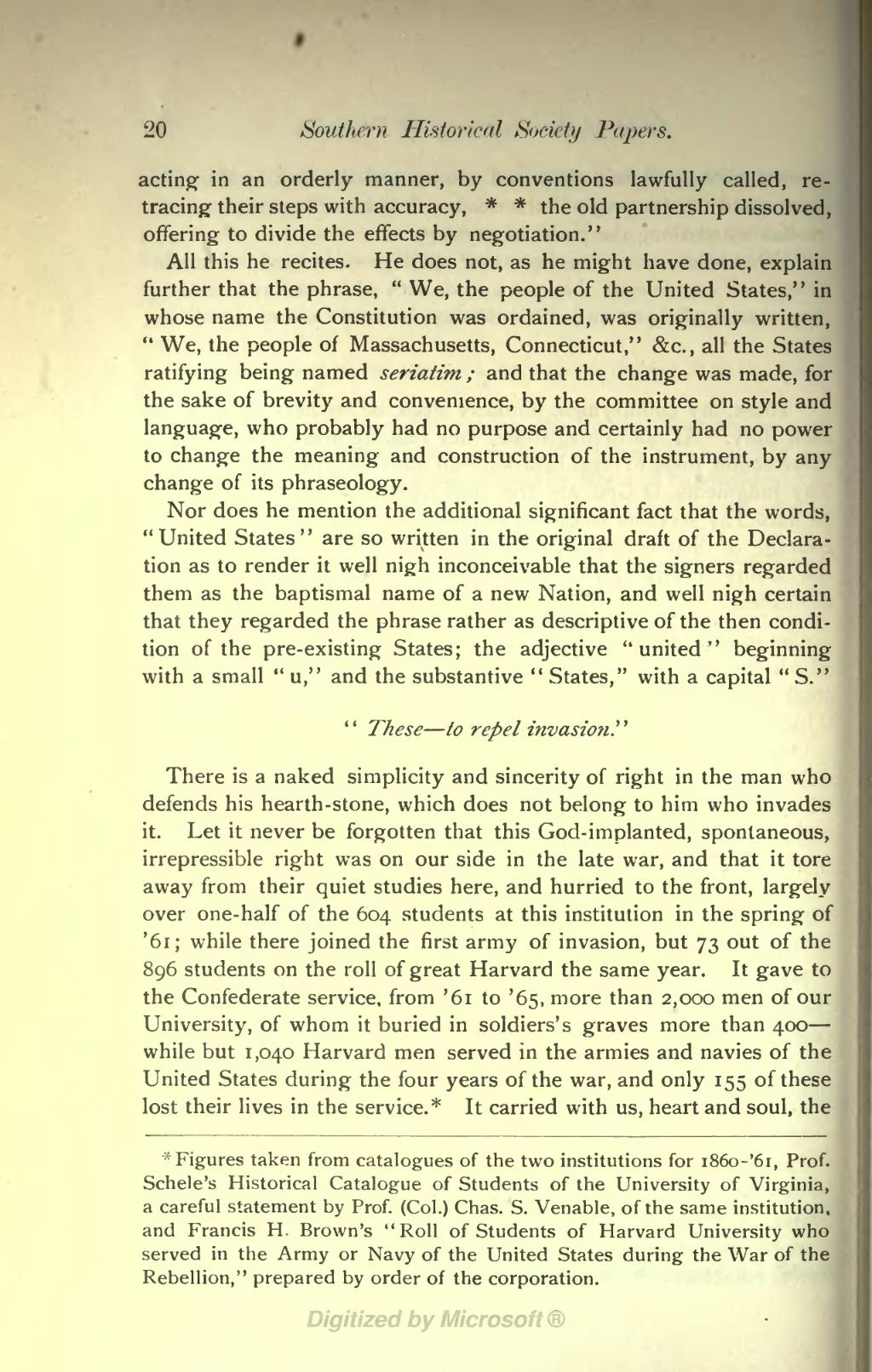20 Southern Historical Society Papers.
acting in an orderly manner, by conventions lawfully called, re- tracing their steps with accuracy, * * the old partnership dissolved, offering to divide the effects by negotiation."
All this he recites. He does not, as he might have done, explain further that the phrase, " We, the people of the United States," in whose name the Constitution was ordained, was originally written, " We, the people of Massachusetts, Connecticut," &c., all the States ratifying being named seriatim ; and that the change was made, for the sake of brevity and convenience, by the committee on style and language, who probably had no purpose and certainly had no power to change the meaning and construction of the instrument, by any change of its phraseology.
Nor does he mention the additional significant fact that the words, "United States" are so written in the original draft of the Declara- tion as to render it well nigh inconceivable that the signers regarded them as the baptismal name of a new Nation, and well nigh certain that they regarded the phrase rather as descriptive of the then condi- tion of the pre-existing States; the adjective "united" beginning with a small " u," and the substantive " States," with a capital " S."
" These to repel invasion"
There is a naked simplicity and sincerity of right in the man who defends his hearth-stone, which does not belong to him who invades it. Let it never be forgotten that this God-implanted, spontaneous, irrepressible right was on our side in the late war, and that it tore away from their quiet studies here, and hurried to the front, largely over one-half of the 604 students at this institution in the spring of '61; while there joined the first army of invasion, but 73 out of the 896 students on the roll of great Harvard the same year. It gave to the Confederate service, from '61 to '65, more than 2,000 men of our University, of whom it buried in soldiers' s graves more than 400 while but 1,040 Harvard men served in the armies and navies of the United States during the four years of the war, and only 155 of these lost their lives in the service.* It carried with us, heart and soul, the
- Figures taken from catalogues of the two institutions for i86o-'6i, Prof.
Schele's Historical Catalogue of Students of the University of Virginia, a careful statement by Prof. (Col.) Chas. S. Venable, of the same institution, and Francis H. Brown's "Roll of Students of Harvard University who served in the Army or Navy of the United States during the War of the Rebellion," prepared by order of the corporation.
